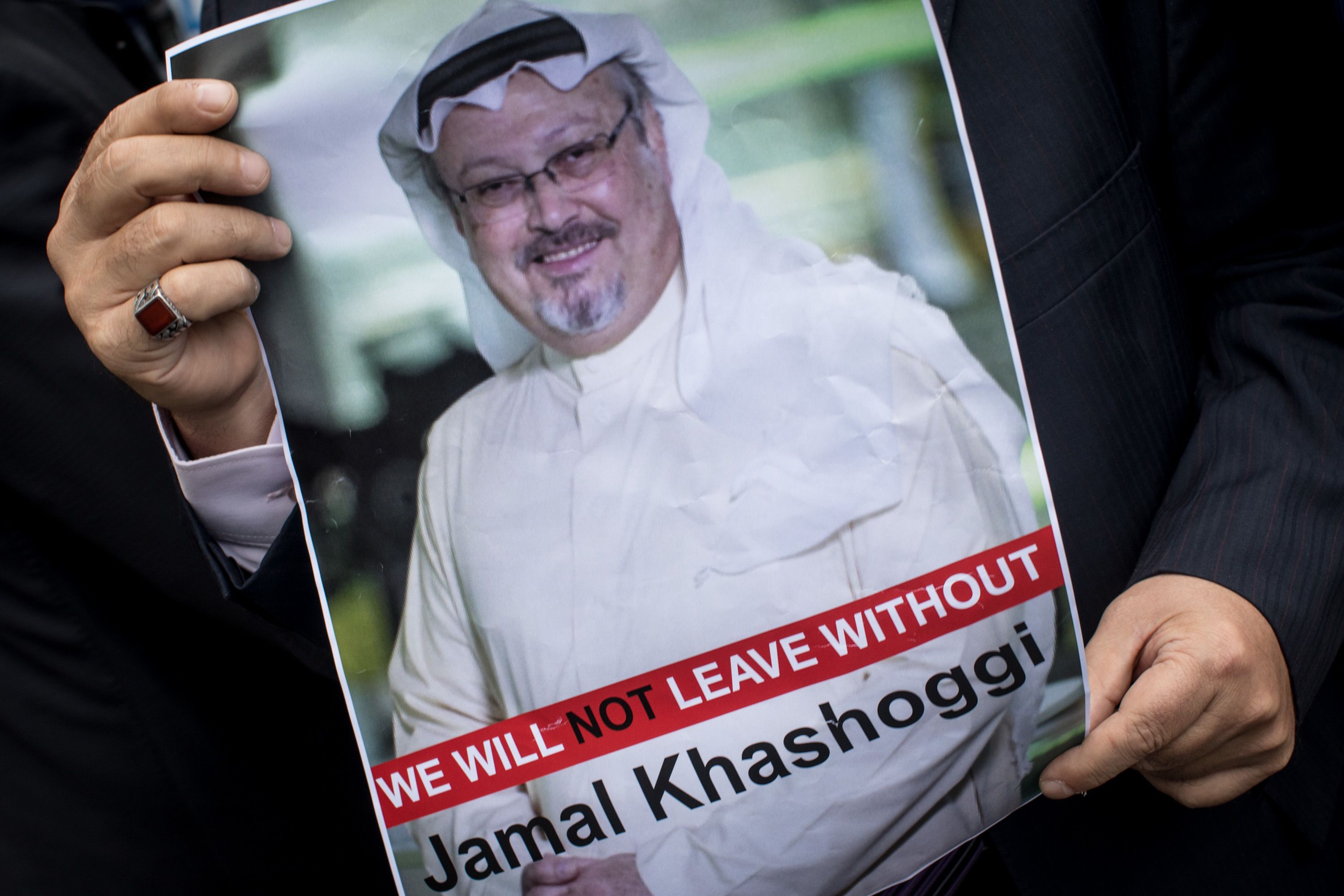Trump admin approved nuclear energy transfers to Saudis after Khashoggi killing

[ad_1]
A man holds a poster of Saudi journalist Jamal Khashoggi during a protest organized by members of the Turkish-Arabic Media Association at the entrance to Saudi Arabia’s consulate on October 8, 2018 in Istanbul, Turkey.
Chris McGrath | Getty Images News | Getty Images
The Trump administration approved the transfer of nuclear energy information to Saudi Arabia on two occasions after the slaying of Saudi dissident Jamal Khashoggi by agents of the kingdom, according to Senate Democrats.
The administration granted the first approval in question Oct. 18, 2018, 16 days after the killing of The Washington Post columnist and Virginia resident at the Saudi Consulate in Istanbul. The second authorization was granted Feb. 18, 2019, three months after the CIA reportedly concluded that Saudi Crown Prince Mohammed bin Salman ordered Khashoggi’s death.
“The alarming realization that the Trump Administration signed off on sharing our nuclear know-how with the Saudi regime after it brutally murdered an American resident adds to a disturbing pattern of behavior,” Sen. Tim Kaine, D-Va., said in a press release.
The information, first shared by Kaine in the press release, came from documents provided by the Department of Energy to the Senate Foreign Relations Committee. Sen. James Risch, R-Idaho, the committee’s chairman, sought information about seven so-called Part 810 authorizations granted to U.S. firms to share nuclear energy information with Saudi Arabia beginning on Dec. 13, 2017.
In particular, congressional Democrats and Republicans alike wanted to know whether the administration continued to grant Part 810 authorizations for information sharing with Saudi Arabia after Khashoggi’s slaying.
The Department of Energy, which approves Part 810 authorizations along with the State Department, did not immediately return a request for comment. A foreign relations aide for Risch could not immediately be reached to confirm the contents of the letter.
A spokesperson for Sen. Robert Menendez, a New Jersey Democrat and the ranking member of the Foreign Relations Committee, confirmed the dates disclosed by Kaine.
“This adds to my existing worries about the Administration’s willingness to give Saudi Arabia a free pass, especially after its brutal murder of Jamal Khashogghi,” Menendez said in an email to CNBC. “The fact that we now know two of these transactions took place after the murder makes clear that the Administration is willing to support the Saudis with impunity.”
The issue of U.S.-Saudi nuclear energy cooperation has become a flash point in the broader conflict between the White House and Capitol Hill over U.S. relations with Saudi Arabia. Members of Congress have questioned whether the kingdom should be trusted with U.S. nuclear energy technology in light of the CIA conclusion that Crown Prince Mohammed played a part in Khashoggi’s murder, an assessment the Saudis deny.
Saudi Arabia is reviewing bids by firms from several countries to build nuclear reactors in the kingdom. The Trump administration wants American companies to win the work, and the authorizations give U.S. firms the ability to share information as they make their pitches to the Saudis. The administration is trying to thwart efforts by China and Russia to export nuclear reactors to Saudi Arabia and other nations.
Yet the Trump administration’s support for Saudi Arabia goes beyond nuclear energy export policy. Riyadh has emerged as one of the Trump administration’s top allies, particularly as Washington aims to crack down on Iran, Saudi Arabia’s chief Middle East rival.
President Donald Trump‘s declaration that the U.S. stands in solidarity with Saudi Arabia following Khashoggi’s killing drew criticism from both sides of the aisle.
Kaine is part of a group of bipartisan senators who introduced legislation in April that would give Congress greater oversight of the executive branch’s power to allow companies to engage in nuclear energy cooperation with foreign countries.
Kaine on Tuesday called out the Trump administration for “citing a bogus emergency to bypass a Congressional block on arms sales to the Saudis, continuing support for the disastrous war in Yemen over Congressional objections, turning a blind eye to the regime’s detention of women’s rights activists, and refusing to comply with the Global Magnitsky Act to reach a determination about the Saudi government’s responsibility for the murder of Jamal Khashoggi.”
The White House did not respond to a request for comment.
Source link






